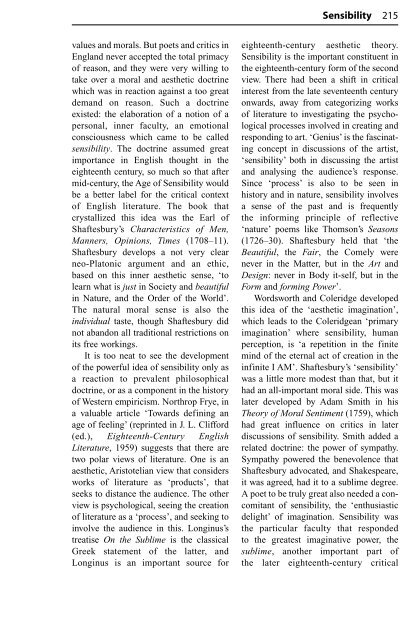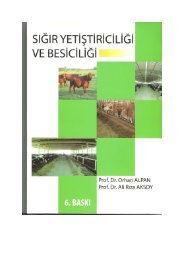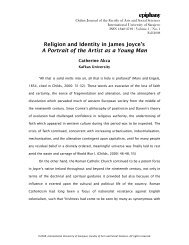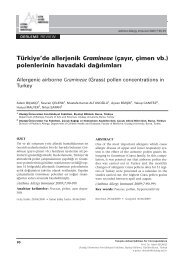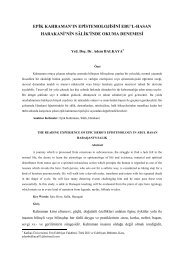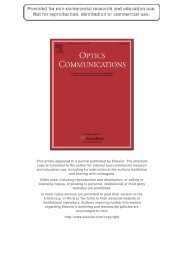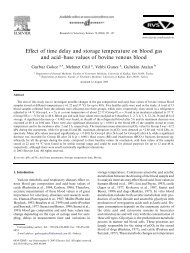The Routledge Dictionary of Literary Terms
The Routledge Dictionary of Literary Terms
The Routledge Dictionary of Literary Terms
Create successful ePaper yourself
Turn your PDF publications into a flip-book with our unique Google optimized e-Paper software.
values and morals. But poets and critics in<br />
England never accepted the total primacy<br />
<strong>of</strong> reason, and they were very willing to<br />
take over a moral and aesthetic doctrine<br />
which was in reaction against a too great<br />
demand on reason. Such a doctrine<br />
existed: the elaboration <strong>of</strong> a notion <strong>of</strong> a<br />
personal, inner faculty, an emotional<br />
consciousness which came to be called<br />
sensibility. <strong>The</strong> doctrine assumed great<br />
importance in English thought in the<br />
eighteenth century, so much so that after<br />
mid-century, the Age <strong>of</strong> Sensibility would<br />
be a better label for the critical context<br />
<strong>of</strong> English literature. <strong>The</strong> book that<br />
crystallized this idea was the Earl <strong>of</strong><br />
Shaftesbury’s Characteristics <strong>of</strong> Men,<br />
Manners, Opinions, Times (1708–11).<br />
Shaftesbury develops a not very clear<br />
neo-Platonic argument and an ethic,<br />
based on this inner aesthetic sense, ‘to<br />
learn what is just in Society and beautiful<br />
in Nature, and the Order <strong>of</strong> the World’.<br />
<strong>The</strong> natural moral sense is also the<br />
individual taste, though Shaftesbury did<br />
not abandon all traditional restrictions on<br />
its free workings.<br />
It is too neat to see the development<br />
<strong>of</strong> the powerful idea <strong>of</strong> sensibility only as<br />
a reaction to prevalent philosophical<br />
doctrine, or as a component in the history<br />
<strong>of</strong> Western empiricism. Northrop Frye, in<br />
a valuable article ‘Towards defining an<br />
age <strong>of</strong> feeling’ (reprinted in J. L. Clifford<br />
(ed.), Eighteenth-Century English<br />
Literature, 1959) suggests that there are<br />
two polar views <strong>of</strong> literature. One is an<br />
aesthetic, Aristotelian view that considers<br />
works <strong>of</strong> literature as ‘products’, that<br />
seeks to distance the audience. <strong>The</strong> other<br />
view is psychological, seeing the creation<br />
<strong>of</strong> literature as a ‘process’, and seeking to<br />
involve the audience in this. Longinus’s<br />
treatise On the Sublime is the classical<br />
Greek statement <strong>of</strong> the latter, and<br />
Longinus is an important source for<br />
Sensibility 215<br />
eighteenth-century aesthetic theory.<br />
Sensibility is the important constituent in<br />
the eighteenth-century form <strong>of</strong> the second<br />
view. <strong>The</strong>re had been a shift in critical<br />
interest from the late seventeenth century<br />
onwards, away from categorizing works<br />
<strong>of</strong> literature to investigating the psychological<br />
processes involved in creating and<br />
responding to art. ‘Genius’ is the fascinating<br />
concept in discussions <strong>of</strong> the artist,<br />
‘sensibility’ both in discussing the artist<br />
and analysing the audience’s response.<br />
Since ‘process’ is also to be seen in<br />
history and in nature, sensibility involves<br />
a sense <strong>of</strong> the past and is frequently<br />
the informing principle <strong>of</strong> reflective<br />
‘nature’ poems like Thomson’s Seasons<br />
(1726–30). Shaftesbury held that ‘the<br />
Beautiful, the Fair, the Comely were<br />
never in the Matter, but in the Art and<br />
Design: never in Body it-self, but in the<br />
Form and forming Power’.<br />
Wordsworth and Coleridge developed<br />
this idea <strong>of</strong> the ‘aesthetic imagination’,<br />
which leads to the Coleridgean ‘primary<br />
imagination’ where sensibility, human<br />
perception, is ‘a repetition in the finite<br />
mind <strong>of</strong> the eternal act <strong>of</strong> creation in the<br />
infinite I AM’. Shaftesbury’s ‘sensibility’<br />
was a little more modest than that, but it<br />
had an all-important moral side. This was<br />
later developed by Adam Smith in his<br />
<strong>The</strong>ory <strong>of</strong> Moral Sentiment (1759), which<br />
had great influence on critics in later<br />
discussions <strong>of</strong> sensibility. Smith added a<br />
related doctrine: the power <strong>of</strong> sympathy.<br />
Sympathy powered the benevolence that<br />
Shaftesbury advocated, and Shakespeare,<br />
it was agreed, had it to a sublime degree.<br />
A poet to be truly great also needed a concomitant<br />
<strong>of</strong> sensibility, the ‘enthusiastic<br />
delight’ <strong>of</strong> imagination. Sensibility was<br />
the particular faculty that responded<br />
to the greatest imaginative power, the<br />
sublime, another important part <strong>of</strong><br />
the later eighteenth-century critical


